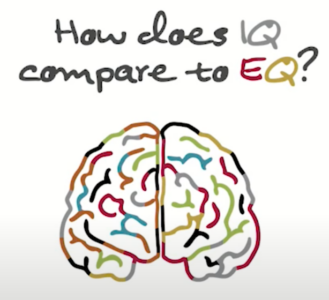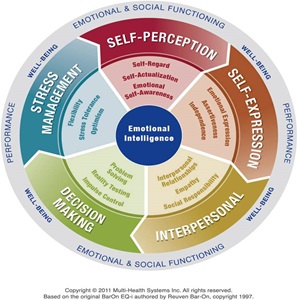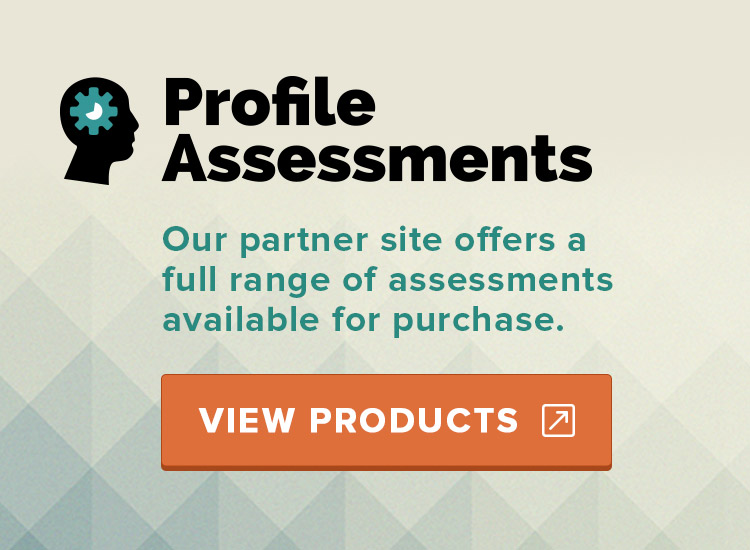Emotional Intelligence for Leaders
 Skills alone are not a predictor of success. 40% of the job requires emotional intelligence. People with higher EQ’s have self and social awareness and can effectively drive individual and team performance in a way that is energizing for the team. The great majority of managers and leaders today might be meeting their numbers but what does the aftermath look like when the goal is met. Are employees burned out and exhausted barely crawling across the finish line? Or are they energized and excited? Or do you care?
Skills alone are not a predictor of success. 40% of the job requires emotional intelligence. People with higher EQ’s have self and social awareness and can effectively drive individual and team performance in a way that is energizing for the team. The great majority of managers and leaders today might be meeting their numbers but what does the aftermath look like when the goal is met. Are employees burned out and exhausted barely crawling across the finish line? Or are they energized and excited? Or do you care?
People skills is what distinguishes good from phenomenal leaders. The great news about EQ is that you DO have the power and ability to increase your EQ score. Emotional Intelligence measures across five key areas: Self Awareness, Self Expression, Interpersonal, Decision Making, and Stress Management.
What is Emotional Intelligence?
 Emotional Intelligence in the workplace is the ability to identify and understand emotions in yourself and others AND to use this awareness to effectively manage your behaviors and relationships. Seems easy enough, yet only one-third of individuals are able to accurately identify their emotions when they happen.
Emotional Intelligence in the workplace is the ability to identify and understand emotions in yourself and others AND to use this awareness to effectively manage your behaviors and relationships. Seems easy enough, yet only one-third of individuals are able to accurately identify their emotions when they happen.
Our Emotional Intelligence (EQ) impacts how we manage behaviors in workplace or social settings and how we make personal decisions that lead to positive results. EQ is the single biggest indicator of performance in the workplace and the strongest predictor of leadership and personal excellence.
Why is EQ Important?
Emotional Intelligence is proven to be a key indicator of human performance and development. People who score higher are able to communicate more effectively, form strong relationships, and create powerful coping strategies. Unlike IQ, Emotional Intelligence can be substantially strengthened and developed.
How Do I Take the Emotional Intelligence (EQi 2.0) Assessment?
The EQi 2.0 Leadership Assessment can be taken on-line. Learners will receive a link and complete a series of questions. EQi 2.0 Reports are then sent. All assessments include a complementary debrief call to help you navigate the many learning possibilities. You might also check out the EQi 2.0 Workplace, EQ360 Workplace, or EQ360 Leader assessments.
The Five Composite Areas of Emotional Intelligence
The Emotional Intelligence (EQi 2.0) assessment generates a total EQ score with five composite scores measuring specific aspects of emotional and social abilities. This understanding helps to gain a deeper understanding of how you handle: conflict resolution, teamwork, change management, decision making, stressful situations, etc.
To improve your EQ in each of the five areas, it’s important to understand each behavioral skill and what it looks like in action.
Self-Perception Composite
This measures how you see or perceive yourself. Individuals with self-regard respect themselves and accept both personal strengths and limitations while remaining satisfied and self-secure. The Self-Perception Composite is comprised of three subscales: Self-Regard, Self-Actualization, and Emotional Self-Awareness. #1 Self-Regard: Individuals with self-regard respect themselves and accept both personal strengths and limitations while remaining satisfied and self-secure.
#1 Self-Regard: Individuals with self-regard respect themselves and accept both personal strengths and limitations while remaining satisfied and self-secure.
#2 Self-Actualization: This can be summed up in three words – pursuit of meaning. It measures your sense of purpose and enjoyment in your job. Those performing at higher levels are able to reach fuller potential.
#3 Emotional Self-Awareness: If you have a solid understanding of what causes your emotions, it is much easier to regulate your behavior and control the impact your emotions have on those you work with.
Self-Expression Composite
This measures the abilities of how an individual expresses their emotions. The three subscales of the Self-Expression Composite are: Emotional Expression, Assertiveness, and Independence.
#1 Emotional Expression: Think of Emotional Expression as the action part of the emotional experience. Individuals who effectively express emotions find words and physical expressions to convey their feelings in a way that is not hurtful to others.
#2 Assertiveness: Imagine a line between the words passive and aggressive. At the middle point of this line lies assertiveness, a place where you work with others by finding the right words at the right time to express your feelings and thoughts.
#3 Independence: This measures the level of self-direction and freedom from emotional dependency. Being independent means you are capable of feeling, thinking, and working on your own.
Interpersonal Composite
This composite measures your relationships with others. The three subscales are: Interpersonal Relationships, Empathy, and Social Responsibility.
#1 Interpersonal Relationships: This subscale is about developing and maintaining mutually satisfying relationships. It measures your ability to build relationships with compassion, trust, and mutual give-and-take.
#2 Empathy: The ability to recognize, understand, and appreciate the way others feel is a crucial EQ skill at the heart of all effective relationships.
#3 Social Responsibility: The moral compass directing your behavior toward promoting the greater good and contributing to society and one’s social groups.
Decision Making Composite
This composite measures your ability to problem solve and make decisions when emotions are involved. The three subscales include: Problem Solving, Reality Testing, and Impulse Control.
#1 Problem Solving: This is not about the quality of your solutions, but rather how effectively you use your emotions in the process of solving a problem.
#2 Reality Testing: The ability to be objective, grounded and see things the way they are. This includes accurately sizing up the environment, resources, and future trends in order to set realistic plans/goals.
#3 Impulse Control: Involves understanding the appropriate times and ways to act on emotions and impulses, and the importance of thinking before acting.
Stress Management Composite
This measures your ability to manage your emotions during situations that might be stressful. The three subscales include: Flexibility, Stress Tolerance, and Optimism.
#1 Flexibility: The ability to modify your thoughts, emotions, and behaviors in response to change. How well you adjust yourself to changing conditions and priorities.
#2 Stress Tolerance: The ability to cope with and respond effectively to stress and mounting pressure. How you manage your emotions, composure, and performance when times get rough.
#3 Optimism: The ability to remain positive despite setbacks often differentiates between ‘star performers’ and others in the workplace. It permeates almost every application of EI, from helping you persevere to enabling you to view change as a good thing.
Put Emotional Intelligence in the Workplace
Learning how to manage Emotional Intelligence in the workplace is the single most important contributor to personal success. The key benefits to understanding your Emotional Intelligence in the workplace are:
- Your emotional level drives your level of achievement to the fullest potential, provides a more positive outlook on your capabilities, and increases your confidence in expressing yourself.
- Successful relationships provide a platform for the open exchange of thoughts and feelings that drive results and performance.
- Your level of awareness, persistence, and decisiveness increases your ability to effectively contribute to the problem-solving process leading to sound decision-making.
- Adapting to change provides a willingness to consider options and contribute to the success of your team.


